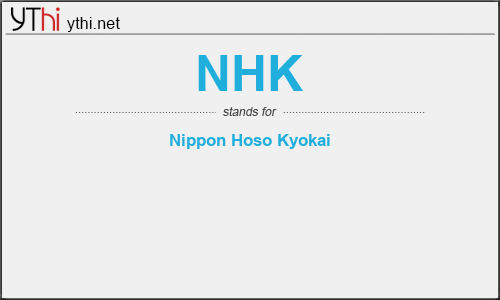What does NHK mean? What is the full form of NHK?
The Full Form of NHK is Nippon Hoso Kyokai.
NHK, Nippon Hoso Kyokai (Japan Broadcasting Corporation), is Japan’s only public broadcaster.
As a public broadcaster funded by fees received from TV viewers, NHK delivers a wide range of impartial, high-quality programs, both at home and abroad.
NHK (Japanese: 日本放送協会, Hepburn: Nippon Hōsō Kyōkai, lit. “Japan Broadcasting Corporation”) is Japan’s national broadcaster. NHK, which has always been known by this romanized initialism in Japanese, is a statutory corporation funded by viewers’ payments of a television license fee.
NHK operates two terrestrial television channels (NHK General TV and NHK Educational TV), four satellite television channels (NHK BS1 and NHK BS Premium), as well as two ultra-high-definition television channels; NHK BS4K and NHK BS8K), and three radio networks (NHK Radio 1, NHK Radio 2, and NHK FM).
NHK also provides an international broadcasting service, known as NHK World-Japan. NHK World-Japan is composed of NHK World TV, NHK World Premium, and the shortwave radio service Radio Japan (RJ). World Radio Japan also makes some of its programs available on the Internet.
NHK was the first broadcaster in the world to broadcast in high-definition (using multiple sub-Nyquist sampling encoding, also known as Hi-Vision) and in 8K.
NHK
means
Nippon Hoso Kyokai![]()
Translate Nippon Hoso Kyokai to other language.


Leave a Reply
You must be logged in to post a comment.